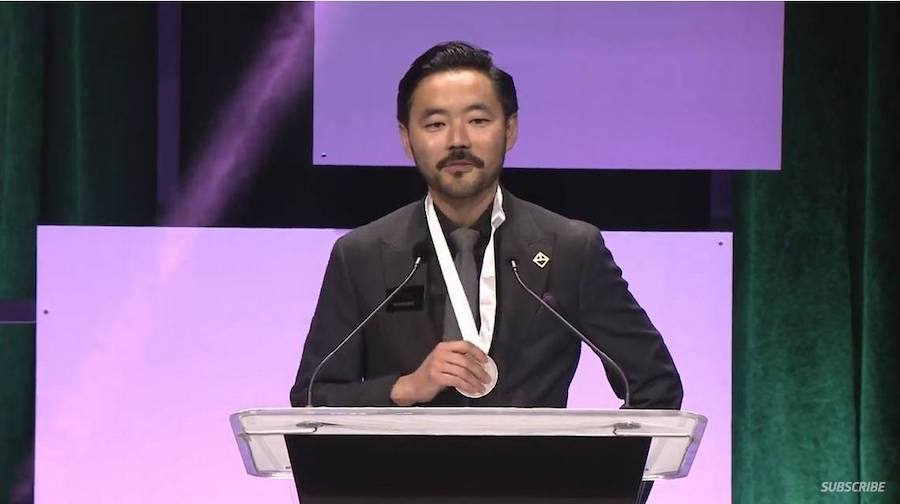
The Caleb Foucault trial has captured the attention of the nation, as it delves into the complex world of criminal justice and the pursuit of truth. In this article, we will provide an in-depth analysis of the trial, examining the key players, the evidence presented, the legal arguments made, and the potential implications of the verdict. Join us as we navigate through the intricacies of this high-profile case and shed light on the various aspects that have made it so captivating.
1. The Background:
To understand the Caleb Foucault trial, it is essential to delve into its background. Caleb Foucault, a prominent businessman, stands accused of embezzlement and fraud, allegations that have sent shockwaves through the business community. The prosecution alleges that Foucault misappropriated millions of dollars from his company’s funds for personal gain. As the trial unfolds, it becomes evident that this case is not just about financial crimes but also about trust, betrayal, and the consequences of one’s actions.
The defense team argues that Foucault is innocent and that he is being wrongly accused due to personal vendettas and corporate rivalries. They claim that the evidence presented by the prosecution is circumstantial at best and lacks concrete proof of Foucault’s involvement in any illegal activities. As the trial progresses, both sides present their witnesses, experts, and documents to support their respective claims.
2. The Key Players:
The courtroom drama of the Caleb Foucault trial is heightened by the presence of several key players. On one side, we have Caleb Foucault himself, a charismatic and influential figure in the business world. His defense team is led by renowned defense attorney, Sarah Thompson, known for her fierce advocacy and ability to sway juries. On the other side, we have the prosecution team, led by District Attorney, John Stevens, a seasoned prosecutor with a reputation for being tough on white-collar criminals.
The witnesses called to testify in this trial are equally significant. Former employees of Foucault’s company, financial experts, and forensic accountants take the stand to provide their insights into the alleged embezzlement scheme. Each witness brings forth a unique perspective, shedding light on the intricate details of the case. As the trial progresses, the courtroom becomes a battleground of conflicting testimonies, leaving the jury with the challenging task of discerning the truth.
3. The Evidence Presented:
The strength of any trial lies in the evidence presented, and the Caleb Foucault trial is no exception. The prosecution presents bank statements, financial records, and witness testimonies to establish a pattern of financial misconduct by Foucault. They argue that these pieces of evidence paint a clear picture of his guilt and demonstrate a deliberate attempt to deceive his company and stakeholders.
However, the defense challenges the credibility and relevance of the evidence presented by the prosecution. They argue that the financial records can be interpreted differently and that the witnesses may have personal biases against Foucault. The defense team meticulously cross-examines each witness, attempting to poke holes in their testimonies and cast doubt on their credibility.
4. The Legal Arguments:
Throughout the trial, both the prosecution and defense teams present compelling legal arguments to support their respective positions. The prosecution argues that Foucault’s actions constitute embezzlement and fraud, emphasizing the impact on the company’s financial stability and the trust of its stakeholders. They assert that Foucault knowingly and intentionally diverted funds for personal gain, violating his fiduciary duty.
In contrast, the defense contends that there is reasonable doubt regarding Foucault’s guilt. They argue that the evidence presented by the prosecution is insufficient to prove beyond a reasonable doubt that Foucault committed the alleged crimes. The defense team highlights inconsistencies in the testimonies and raises questions about the motives of the witnesses. They assert that Foucault is a victim of a conspiracy aimed at tarnishing his reputation and removing him from his position of power.
Conclusion:
The Caleb Foucault trial has captivated the nation, offering a glimpse into the complexities of the criminal justice system. As the trial reaches its conclusion, the jury faces the daunting task of weighing the evidence, assessing witness credibility, and determining Foucault’s guilt or innocence. The verdict will not only impact the lives of those involved but also serve as a reflection of our society’s commitment to justice and accountability. Regardless of the outcome, this trial serves as a reminder that even those in positions of power are not immune to scrutiny and the pursuit of truth.
